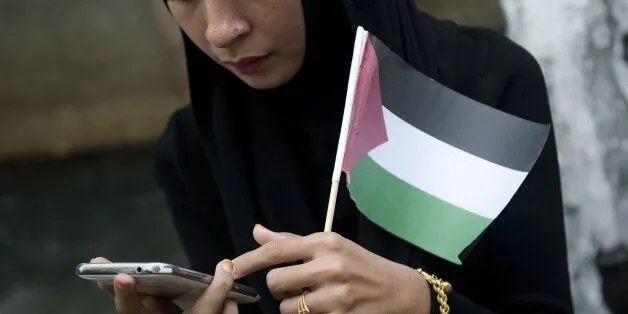RAMALLAH: Israel has long had the upper hand when it comes to exploiting social media in the war of influence with its Palestinian opponents — but that may be changing.
Hundreds of Palestinian accounts have been frozen on Facebook, WhatsApp, Instagram and Twitter, based on Israeli claims that they contain “provocative content.”
However, Palestinians are refusing to surrender to the ban and increasingly are shifting to TikTok, a move that has angered Israel.
The Beijing-based Chinese multinational ByteDance, which owns the application, has refused several Israeli demands to shut down Palestinian accounts over alleged provocative material after similar requests were agreed to by Facebook and Twitter.
TikTok has become a major instigating factor in recent incidents in the West Bank and East Jerusalem as #FreePalestine trended on the app.
Mobile cameras in the hands of the Palestinians have become an effective tool to document unfolding events and tell the world their side of the story.
Palestinians and Israelis told Arab News that the app played an important role in the escalation of events at the Damascus Gate and Sheikh Jarrah neighborhood in Jerusalem in May 2021, which led to the outbreak of an 11-day war between Hamas and Israel.
Videos published on TikTok by young Palestinians encouraged others to join in clashes with Israeli troops and security forces.
According to Palestinian and international social media sources, there were 3.73 million internet users in Palestine in January 2022, about 70 percent of the Palestinian population.
LinkedIn is used by 300,000 Palestinians, while 1.35 million use Snapchat. TikTok’s use is rising significantly — 27.7 percent of the Palestinian population uses the app, while Twitter is used by 26.4 percent of Palestinians. More than 4.37 million cellular mobiles are connected to the net.
Meanwhile, the mobile camera has become more lethal than the gun in the hands of Palestinians filming settler assaults, Israeli troops’ mistreatment of Palestinians at checkpoints, home demolitions and raids at Al-Aqsa Mosque, with footage eliciting a strong reaction worldwide. Even Gaza’s rulers Hamas have a Twitter channel in English.
The increasingly effective Palestinian presence on social media platforms is causing growing concern in the Israeli government, which has set up a special team with members from the foreign and defense ministries and the Israeli security agency Shin Bet to handle the issue.
Israeli security officials have warned soldiers against accepting suspicious friendship requests on Facebook or other platforms after Hamas activists posed as attractive Jewish women and befriended special forces members to collect intelligence from them.
Israel also has cracked down on Palestinians’ social media activities, recently arresting 30 people because they “liked,” commented on, or shared a controversial post.
Some Palestinians have received phone calls either from Shin Bet in the West Bank or the Israeli police in East Jerusalem asking them to remove their posts or face arrest. Israeli security agencies believe that “incitement” through social media and coverage of attacks in the traditional media generate violence.
The Israeli police’s Arabic media desk launched a Telegram channel on April 20 to reach out to a wider Arab audience and defend its version of recent events at Al-Aqsa, following the widespread dissemination of footage showing Israeli police allegedly beating women, the elderly and children.
Dozens of Palestinian community activists in the US and international peace campaigners have also intensified their activities on social media platforms to condemn Israeli attacks on Palestinians since the beginning of Ramadan and the violent clashes at Al-Aqsa.
In a bid to sway US public opinion, activists republished videos and images detailing Israeli violence against Palestinians in Jerusalem, the Gaza Strip and West Bank cities.
Activists also used a variety of hashtags to relay the content to members of Congress.
Protests are planned in US cities, including Los Angeles and New York, in coming days in support of Palestinian rights and to denounce Israeli aggression.
Speaking on condition of anonymity, the director of one of the largest internet service providers in the Palestinian territories told Arab News that Palestinians’ restricted movement and lack of options are pushing them to spend more time online.
“It has become an essential part of the Palestinian struggle against the Israeli occupation and is enabling the Palestinian narrative to be known,” the director said.

